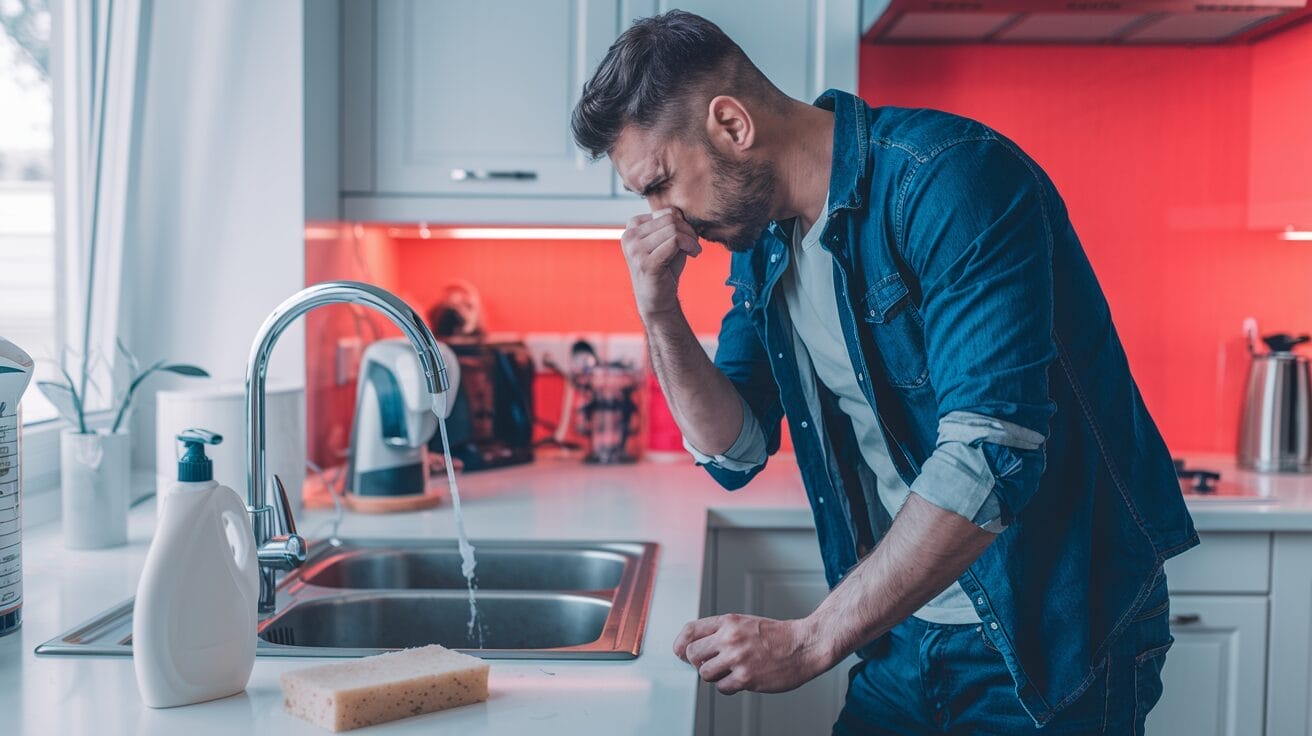
Dealing with a smelly drain can be frustrating, as unpleasant odors can linger and spread throughout your kitchen or bathroom. These odors are often caused by bacteria, buildup, or trapped particles within the pipes. Fortunately, there are simple methods to tackle these smells and keep your drains fresh. Here are some ways you can get rid of a smelly drain easily.
- Pour Some Bleach in It
- Use Boiling Water
- Try Some Vinegar and Baking Soda
- Use a Drain Snake
- Lemon and Salt Scrub
- Use Enzyme-Based Cleaners
Pour Some Bleach in It
Pouring a small amount of bleach down the drain can help kill odor-causing bacteria and neutralize unpleasant smells. Be sure to use bleach sparingly, as excessive use can damage pipes. Pouring a small, diluted amount occasionally is usually enough to freshen up your drains.
Use Boiling Water
Boiling water is a simple yet effective solution for clearing odors. Pouring hot water down the drain can dissolve soap scum, grease, and other debris that can trap odors. Flushing with boiling water regularly can prevent buildup, keeping your drains fresh.
Try Some Vinegar and Baking Soda
A vinegar and baking soda mixture creates a fizzing reaction that helps to clear out gunk and neutralize odors. Pour half a cup of baking soda followed by half a cup of vinegar down the drain. Let it sit for a few minutes, then flush with hot water to wash away any residue.
Use a Drain Snake
A drain snake can reach into the pipes to remove trapped hair, food particles, and other debris that may be causing odors. Clearing out physical blockages will help your drains stay clean and odor-free.
Lemon and Salt Scrub
For a natural deodorizer, try scrubbing around the drain with lemon and salt. The lemon’s acidity and the abrasive nature of salt help to remove grime around the drain opening, leaving a fresh citrus scent behind.
Use Enzyme-Based Cleaners
Enzyme-based cleaners are a great option for eco-friendly odor removal. These cleaners break down organic material in the pipes, effectively reducing odors without the need for harsh chemicals. Regular use can prevent buildup that contributes to smelly drains.
What Causes a Drain to Stink?
Drains can develop foul odors for various reasons, ranging from bacteria buildup to structural issues. Over time, soap, grease, food particles, and more can build up in pipes, creating a breeding ground for bacteria and other sources of unpleasant smells. Here is the list of potential issues that can cause a stinky drain:
- Gunk and Bacteria
- Clogged Vent Pipes
- Sewer Gasses
- Mold Growth
- Tree Roots
1. Gunk and Bacteria
Soap particles, food residue, hair, and grease can build up in pipes, creating an ideal environment for bacteria to thrive. This gunk can release foul odors as it decays, making your drains smell unpleasant.
2. Clogged Vent Pipes
A clogged vent pipe can cause water to pool in your sink, leading to standing water that can promote bacterial growth. Over time, this stagnant water can release unpleasant smells, particularly in bathroom and kitchen drains.
3. Sewer Gasses
If you detect a sulfur-like odor, sewer Gasses may be leaking into your home through the drain. Hydrogen sulfide gas, produced by bacteria in the P-trap, can cause a foul smell, especially if there’s a clog or backup.
4. Mold Growth
Musty odors often indicate mold growth. Drains provide an ideal environment for mold to thrive due to their constant moisture. As mold grows, it releases Gasses that create unpleasant smells.
5. Tree Roots
If tree roots penetrate your pipes, they can block water flow and lead to backed-up, smelly drains. Roots seeking water sources can grow into pipes, creating cracks and clogs that contribute to unpleasant odors.
How to Prevent Smelly Drains From Happening
Preventing smelly drains is often easier than dealing with odors after they develop. Incorporate the following maintenance tips to keep your drains fresh:
Rinse with Hot Water Weekly
Pour hot water down the drain once a week to clear away soap scum, grease, and particles that may cause odors.
Use Baking Soda Regularly
Sprinkling baking soda in the drain every few weeks and rinsing with warm water can neutralize odors and prevent buildup.
Dispose of Food Waste Properly
Avoid sending food scraps or grease down the drain. Instead, scrape plates into the trash or compost to avoid clogs and smells.
Clean Drain Stoppers
Remove and clean stoppers or strainers regularly, as they can trap debris that decays and produces foul odors.
Install Drain Traps
Drain traps create a water barrier that blocks sewer Gasses from entering your home, effectively reducing the risk of unpleasant odors.
When to Get Professional Drain Cleaning Services?
If you’ve tried these methods but still experience persistent odors, it may be time to call a professional. TX Hydrojet in Houston, TX, specializes in cleaning drains and pipelines using advanced techniques to remove buildup and ensure clear, odor-free drains. Professional cleaning can help address deep-rooted issues that regular maintenance might not solve, keeping your plumbing system in top condition.


